Meet the Creator: Fiona Hardy
"As far as adult books go, it's kind of fun to maybe shoot a bad guy a little in a crime book, when in a kids' book you should probably just go tell a trusted adult."
Fiona Hardy is an experienced bookseller and award-winning author. Her middle grade novels HOW TO MAKE A MOVIE IN 12 DAYS, HOW TO TACKLE YOUR DREAMS and HOW TO WRITE THE SOUNDTRACK TO YOUR LIFE have been awarded CBCA Notables and the Children’s Peace Prize. Last month she made her debut as crime writer with UNBURY THE DEAD – gritty, pacy Australian noir with a strong through-line of female friendship and humour – which has been released to rave reviews.
Q&A WITH FIONA HARDY
Can you remember the kid's book/s that made you want to be an author? Other childhood favourites or early influences?
I wanted to be a writer from the age of five – I very solidly remember enjoying making a version of Alice in Wonderland about five sentences long in grade one, and thinking clearly: this is what I want to do forever. My favourite early book was Go Dog Go, a PD Eastman/Dr Seuss book that I read over and over, marvelling at the pictures and the excitement and the humour. As I got older, I loved the American author Paula Danziger, who delved into serious issues, but always with a lot of humour. Finding her books in markets and second-hand shops was a very specific delight.
When did you decide you wanted to be an author? How did you go about it?
Once I'd decided to become a writer, I was tremendously lucky to have the support of my family, who loved (or at least pretended very well) when I wrote stories about all my pets and my friends' pets or every single thing I'd ever seen. I remember doing a school holiday writing class as a kid and deciding I was going to write my story about a toilet door – I'd really imagine a backstory for everything around me! (I managed to reign in my imagination as I got older, but even now I'm always tempted to give every side character in my books a ten-page aside.) After graduating high school, I studied Professional Writing & Editing at Holmesglen TAFE, and kept writing constantly – but didn't get published (or really put in the effort to do so) until my mid-thirties.
Congratulations on your debut crime novel! Tell us a bit about Unbury the Dead and how it came to you.
Thanks so much! Unbury the Dead has been a long time coming – the first document with the kernel of the story was from 2016. It actually started as a whole different plot line, one I couldn't solve even after I invented two main characters, Teddy and Alice – private investigators working for a minor crime boss – hoping they'd help me figure it out. They couldn't (because I couldn't), but I enjoyed the relationship between the two so much that I gave them a whole new problem to work with. Teddy starts Unbury investigating a missing persons case, and Alice begins it driving a dead body to his final resting place in regional Victoria. When their unconnected cases turn out to have something in common and a violent act sees the women devastated, they team up to figure out what the hell happened, and what justice might mean in their unjust careers.
How have you found the process of writing and publishing an adult book after writing for kids? Was there anything that surprised you?
The publicity! There's just a lot more out there in the adult sphere. Even my friends have said they're more likely to read my adult book (but were always very encouraging about my kids books)! As a chronic over-writer, I've also been really thrilled by my editors letting me loose with a higher word count. One thing that isn't a surprise is the camaraderie between adult authors and kids authors – everyone's so supportive of each other in this industry, and it's a real joy.
What’s next for you?
I'm always working on a few things at the same time! I've got a Middle Fiction/YA crossover about Christmas Island that I'm polishing; I'm working on two more crime books with Teddy and Alice; there's also another more fragile contemporary fiction idea I've been writing, which is about guilt. It’s a bit more bleak than my usual style, so I have to be in the right headspace for that one. I've also been working on an outline for a junior fiction series, and I have a few short story ideas knocking about, too.
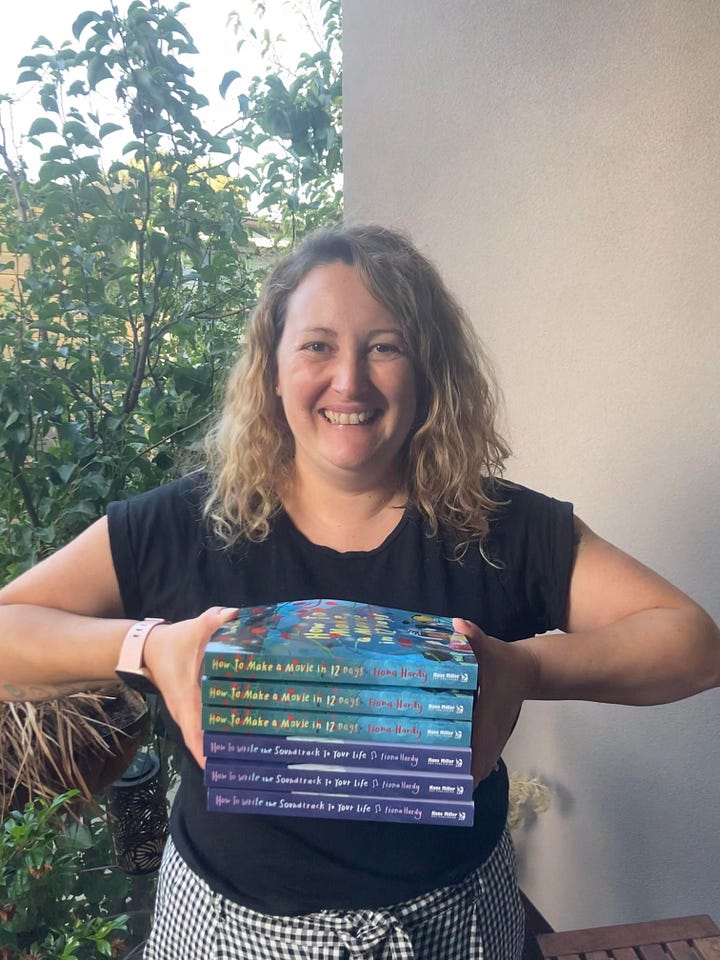
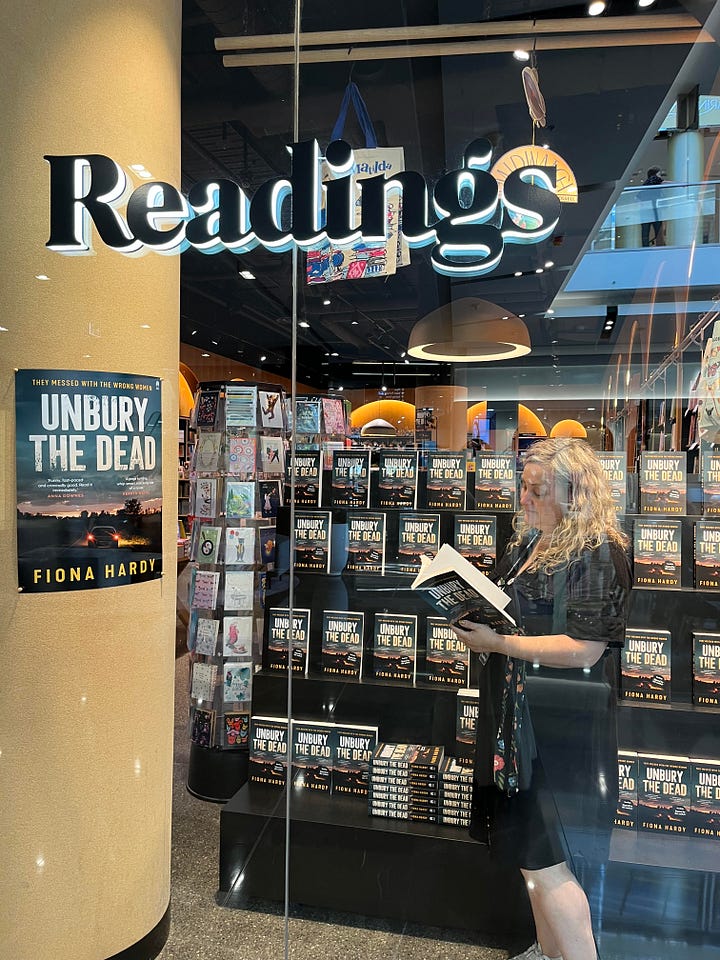
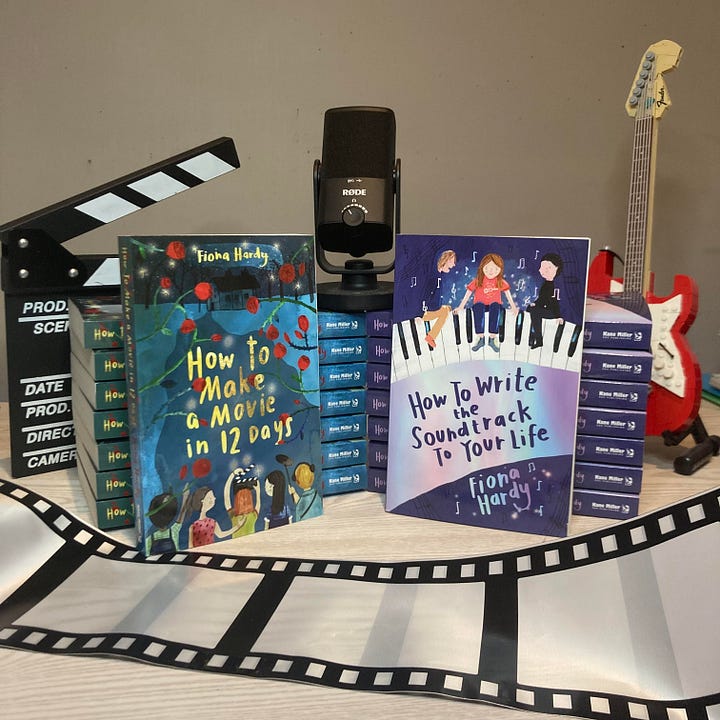
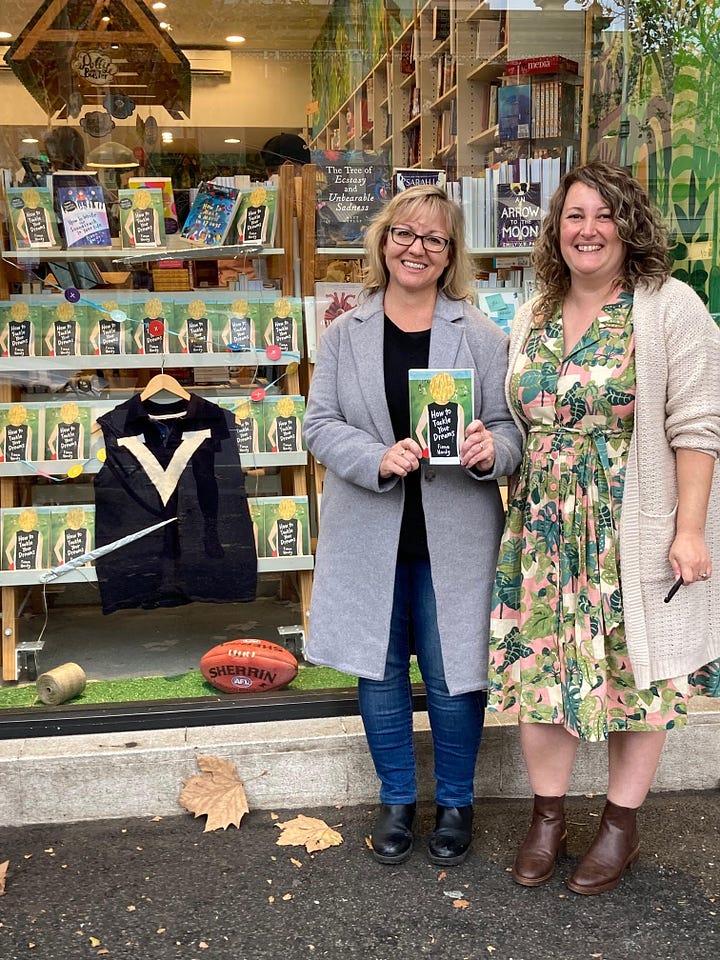
How do you decide what to work on next? Do you jump between projects or follow one through til the end?
I usually try and finish the draft of one thing, and then give it a break while I write the draft for something else. Then I've had some time away and mental separation from the story, so when I return to it, I can see where the problems might be, or what works, and look at it a bit more critically. I used to jump around a lot more, but I try to do that a bit less now – it takes time to fully immerse myself in a book's world, and skipping away from it makes it tricky to keep all the threads in my head.
You've just been hit by a new idea in the middle of work/life/a shower/the night. What's next? How do you record it and how/when do you tackle it?
I have a note in my phone that's just called "Ideas", and it is absolutely crowded with my nonsense thoughts. Sometimes it will be a single line or turn of phrase, sometimes a decent amount of plot, sometimes a character. To be honest, I don't go back to it as much as I think I will when I'm writing down these ideas (and thinking they're absolute genius moments), but I will return to it now and then and find some gems. When cloning becomes a thing, I can maybe hand over each idea thread to my clones and they can work on them for me. Hopefully I can come up with a more realistic solution before that happens!
What are some of your favourite ways to get the words down? Dedicated time at a retreat, morning sessions, writing in the cracks?
This often changes – I used to write religiously at cafes, but now only at home. I move around depending on the best sunlight or my mood – deadlines always have to be at the desk, ideas are often best on the couch. I think my best time is early morning or the frantic time when I've realised I have to leave for school pickup in an hour and that's all the time I have left to finish what I've started. Retreats are an absolute luxury of time and freedom – no school pickup, no thinking about anything but the story. My output when I've gone on retreats is high, and the time spent with other writers talking about the craft is priceless.
What do you enjoy most about writing for kids? What do you enjoy most about writing for adults?
Kids are a lovely audience who, when they like your books, will tell you with unparalleled enthusiasm. Kids writing is, for me, a place to be more loose and fun and very deliberately silly, while also trying to put something of real life in there for readers, too.
As far as adult books go, it's kind of fun to maybe shoot a bad guy a little in a crime book, when in a kids' book you should probably just go tell a trusted adult.
What’s still on your writing/creative bucket list?
Being published in the UK and Canada so my relatives there can visit my books in stores! And, of course, the ultimate desire – seeing somebody in the wild reading your book, and being able to go up and say hi and tell them you're the author. I know Anna Downes got to do that recently at the seaside – what a dream. Overall, I hope to just be able to keep writing a whole pile of different books for as long as I'm alive.
Is there something you would love to be asked in an interview but haven't been yet?
I remember being in the audience for a debut writers panel years ago – before I was published – and wanting to know how all the authors felt when they found out they got their first book deals. So I'll answer that: I was at work, and went out the back at the end of my shift and found a text from my agent that said something like, "How would you like to be published by Affirm?" I screamed, my colleague screamed in happiness, I drove home hollering my favourite song in the car, then thundered up my front steps and threw the door open to my startled partner (convinced there had been a disaster) and yelled, "I'm getting published!" Whenever I hear the song that played on that drive home, Wings by the band HAERTS, I remember that glorious feeling all over again.
Find out more about Fiona and her books at fionathehardy.com or follow her on Instagram @fionathehardy
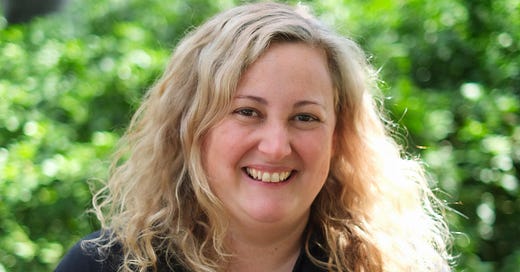




Oh I loved reading this interview! SO insightful and interesting – hooray for Ideas notes on our phones 😁 I do the same.